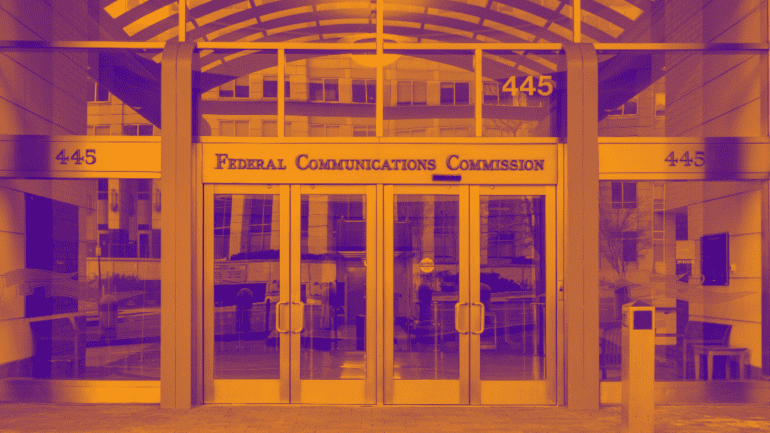TL;DR:
- FCC is investigating the growing threat of AI-enhanced robocalls.
- Chairwoman Jessica Rosenworcel proposes a Notice of Inquiry to assess existing consumer protections.
- The inquiry will explore how the Telephone Consumer Protection Act (TCPA) can combat AI-powered scammers.
- Rosenworcel acknowledges the potential benefits of AI in improving phone-based interactions.
- Industries like customer service are considering AI to enhance customer experiences.
- AI also poses risks, enabling tailored scams that were previously time-consuming.
- The FCC aims to proactively address this emerging threat and stay ahead of scammers.
- Key focus areas of the inquiry include AI’s alignment with TCPA, regulation of future AI technologies, and impact on regulatory frameworks.
- The FCC seeks ways to verify the authenticity of AI-generated content and plans the next steps for the investigation.
Main AI News:
The Federal Communications Commission (FCC) is poised to tackle the growing menace of AI-enhanced robocalls, a problem that has escalated with the rise of sophisticated artificial intelligence technology. These AI-powered calls, which can mimic human conversation with alarming realism, pose a significant threat to consumers. In response, the FCC, under the leadership of Chairwoman Jessica Rosenworcel, is taking proactive steps to understand the implications and explore regulatory measures.
Chairwoman Rosenworcel has put forth a Notice of Inquiry, slated for approval at the agency’s upcoming meeting. Given the overwhelming support it is expected to garner, this inquiry will serve as a crucial step in assessing how the existing Telephone Consumer Protection Act (TCPA) can be leveraged to combat scammers and spammers employing AI technology.
Nevertheless, Chairwoman Rosenworcel is careful to strike a balance between curbing the misuse of AI and recognizing its potential for enhancing accessibility and responsiveness in phone-based interactions. She stated, “While we are aware of the challenges AI can present, there is also significant potential to use this technology to benefit communications networks and their customers—including in the fight against junk robocalls and robotexts. We need to address these opportunities and risks thoughtfully, and the effort we are launching today will help us gain more insight on both fronts.“
Industries heavily reliant on voice interactions, such as customer service, are already exploring ways to harness automation and generative AI to augment human agents’ capabilities. Instead of delivering scripted responses, AI can consult vast knowledge bases to provide tailored scripts aligned with each customer’s unique experience. Additionally, AI-powered triage systems could streamline the cumbersome process of navigating through menu options, creating a more user-friendly experience.
However, the very technologies that promise efficiency and improved user interfaces can also be exploited to deceive or inconvenience individuals. The potential for AI-driven robocalls tailored to one’s profession, age, and location is a disturbing reality. What once required painstaking effort can now be automated, making it easier for scammers to target unsuspecting victims.
As the primary watchdog in this arena, the FCC must stay ahead of the curve. While the agency has previously imposed hefty fines on robocallers (though not always collected), it recognizes the urgency of addressing this evolving threat. The current inquiry is a crucial step in achieving this goal.
Chairwoman Rosenworcel has outlined the specific focus areas of the effort:
- Examining how AI technologies align with the Commission’s responsibilities under the TCPA.
- Determining if and when future AI technologies should be subject to TCPA regulations.
- Evaluating the impact of AI on existing regulatory frameworks and future policy development.
- Considering methods to verify the authenticity of AI-generated voice or text content from trusted sources.
- Exploring the necessary next steps to advance this inquiry.
While this may seem complex, it is important to remember that these inquiry-type initiatives are pivotal tools for the agency, guiding rulemaking decisions and providing legal justification when needed. In the rapidly evolving landscape of AI-powered robocalls, the FCC is taking proactive steps to protect consumers and uphold the integrity of telecommunications. Stay tuned for updates on this critical investigation in the world of business and technology.
Conclusion:
The FCC’s strategic inquiry into AI-enhanced robocalls reflects a proactive stance in safeguarding consumers and telecommunications integrity. While acknowledging AI’s potential benefits, the FCC is poised to address the risks and pave the way for a more secure and efficient market environment. Businesses should remain vigilant and adaptable as regulatory changes in this domain are likely on the horizon.

